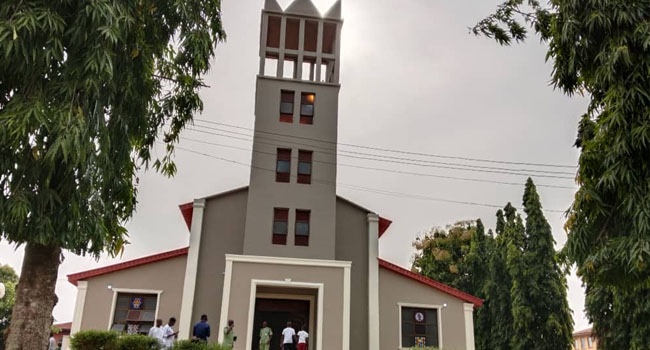
President Tinubu Appoints Ms. Rinsola Abiola as New Director-General of Citizenship and Leadership Training Centre

In a major announcement that has already stirred reactions across the country, President Bola Ahmed Tinubu has appointed Ms. Rinsola Abiola as the new Director-General of the Citizenship and Leadership Training Centre (CLTC), a strategic institution tasked with fostering patriotism, discipline, and leadership skills among Nigerians.
The appointment, which was made public in a statement released earlier today from the presidency, marks yet another bold move by the administration to inject fresh energy, competence, and youth-driven innovation into critical national agencies. Ms. Rinsola Abiola, a well-known public affairs analyst, youth advocate, and social commentator, is no stranger to leadership or service.
The daughter of the late Chief Moshood Kashimawo Olawale Abiola, widely regarded as the presumed winner of the annulled June 12, 1993 presidential election, Rinsola carries a name steeped in Nigerian political history and democratic struggle. However, beyond her lineage, she has carved her own niche in public service and advocacy, earning respect from both her peers and senior stakeholders in government and civil society.
Her appointment to head the CLTC comes at a time when Nigeria faces urgent calls to reawaken civic responsibility, strengthen national unity, and rebuild public trust in government institutions. The Citizenship and Leadership Training Centre, established in 1951 and operating under the Federal Ministry of Youth Development, has the mandate to provide training that promotes responsible citizenship, disciplined leadership, and national integration. In recent years, stakeholders have lamented a decline in civic education and youth engagement in national development, making the appointment of a young, dynamic, and outspoken figure like Ms. Abiola especially significant. For many Nigerians, the CLTC is more than just a training institution; it is a legacy project designed to bridge gaps between diverse ethnic, cultural, and religious communities through shared experiences and a deepened understanding of national identity.
The announcement has already sparked an outpouring of congratulations and high expectations on social media, with political figures, youth leaders, and ordinary citizens weighing in. While some praise President Tinubu for recognizing the value of youthful leadership and gender inclusion, others see it as a challenge for Ms. Abiola to prove herself in an era when public trust in leadership is fragile. In her initial reaction to the appointment, Ms. Abiola expressed gratitude to President Tinubu for the confidence reposed in her and promised to serve with integrity, vision, and a strong commitment to the values the Centre represents. She pledged to revitalize the institution’s programs, expand outreach to rural and urban youth, and make the CLTC a hub for grooming a new generation of responsible leaders who will champion Nigeria’s development agenda.
Observers have noted that her background in advocacy, her track record of mentoring young leaders, and her emphasis on social accountability make her well-suited for the role. She has been actively involved in initiatives promoting women’s political participation, youth empowerment, and national dialogue, often calling for reforms in governance and the strengthening of democratic institutions. This experience could prove vital in repositioning the CLTC for relevance in a fast-changing socio-political landscape. The timing of her appointment is also politically symbolic. Coming in the wake of recent national debates about patriotism, security, and unity, many analysts believe the Tinubu administration is strategically placing capable hands in positions where they can influence national orientation and civic consciousness.
For a generation of young Nigerians who often feel disconnected from the structures of governance, having a relatable, outspoken, and digitally savvy DG at the CLTC could be a game-changer. Ms. Abiola’s history of engaging with young people on social media, organizing grassroots campaigns, and amplifying the voices of underrepresented groups could help bridge the gap between the Centre’s mission and the reality of Nigeria’s youthful population. However, the task ahead is anything but easy. The CLTC, while historically respected, has in recent years faced challenges including inadequate funding, outdated training facilities, and limited public awareness about its programs. Revamping its curriculum to address contemporary issues such as digital citizenship, climate change leadership, entrepreneurship, and community-based peacebuilding will require both innovation and strategic partnerships.
Many will also expect her to strengthen collaborations with schools, universities, community-based organizations, and international partners to ensure that the Centre’s work has real impact across the federation. From its headquarters in Abuja to its regional training centres, the CLTC has the potential to become a catalyst for national transformation if its leadership can inspire renewed public interest in civic responsibility. Ms. Abiola’s appointment also holds symbolic weight for women in leadership. Nigeria has long grappled with low female representation in public office, and her rise to this influential position sends a strong signal about the growing recognition of women’s contributions to governance and national development. As a vocal advocate for gender equality, she has often argued that empowering women is not just a moral imperative but an economic and social necessity for the country’s progress.
Internationally, her appointment may also attract attention from organizations focused on leadership development, youth empowerment, and democracy-building, potentially opening new avenues for collaboration and resource mobilization. The CLTC could see an infusion of global best practices in leadership training, making its programs more competitive and impactful. In the coming weeks, all eyes will be on Ms. Abiola as she assumes office and begins to articulate her vision for the Centre. Expectations will be high, and Nigerians will be watching closely to see how quickly she can translate her promises into concrete action. For President Tinubu, the choice of Ms. Abiola is a calculated risk and a statement of intent — that the administration is ready to entrust key institutions to younger leaders who can speak the language of today’s Nigeria while honoring the traditions that have held the nation together.
For Ms. Abiola herself, the weight of history sits squarely on her shoulders. As the daughter of a man whose name is synonymous with sacrifice for democracy, her leadership will inevitably be judged not just by her professional achievements, but also by the values she upholds and the legacy she builds. The coming months will test her resolve, her capacity to innovate, and her ability to unite diverse stakeholders behind a common vision. Whether she is remembered as the Director-General who transformed the CLTC into a powerhouse of national unity and civic education, or as just another political appointee, will depend entirely on the choices she makes and the results she delivers.
For now, however, the mood is one of cautious optimism. In appointing Ms. Rinsola Abiola as the new DG of the Citizenship and Leadership Training Centre, President Tinubu has signaled a willingness to redefine leadership for a new generation — one that demands transparency, competence, and an unwavering commitment to the Nigerian project. And for millions of young Nigerians, this could be the moment that rekindles their faith in the idea that leadership, when entrusted to those who truly care, can indeed change the destiny of a nation.

